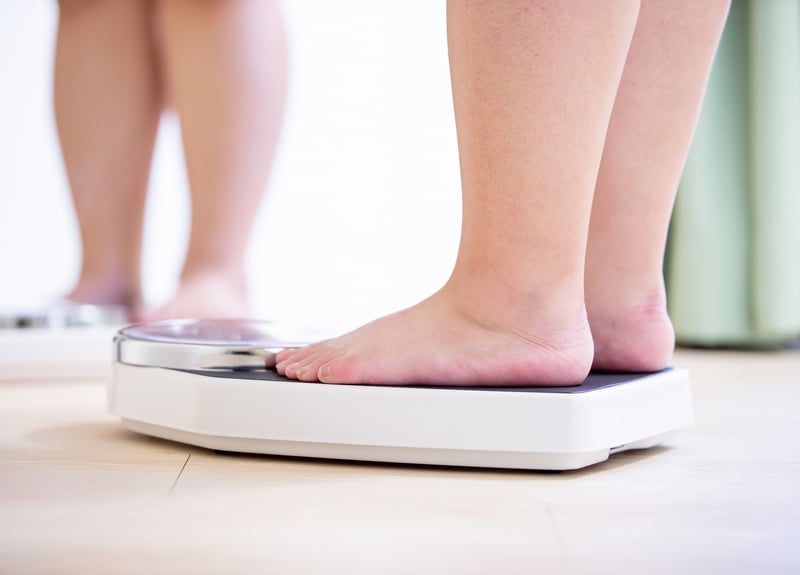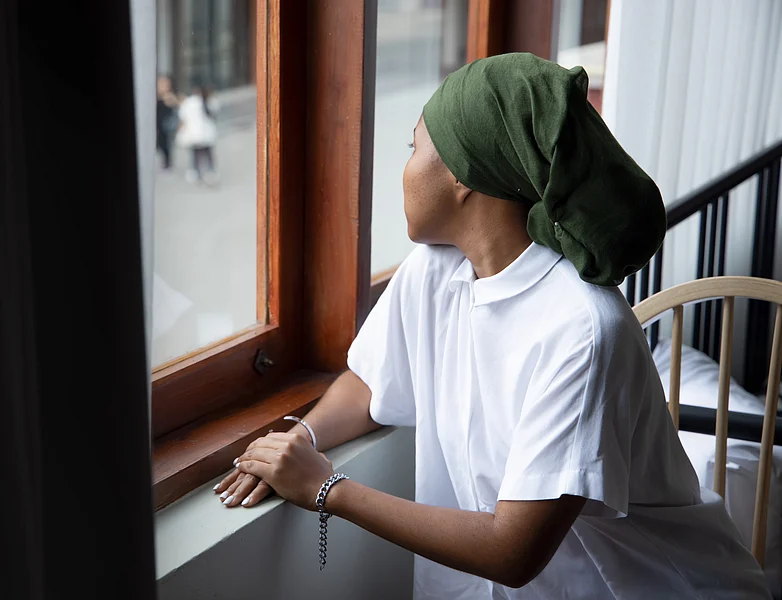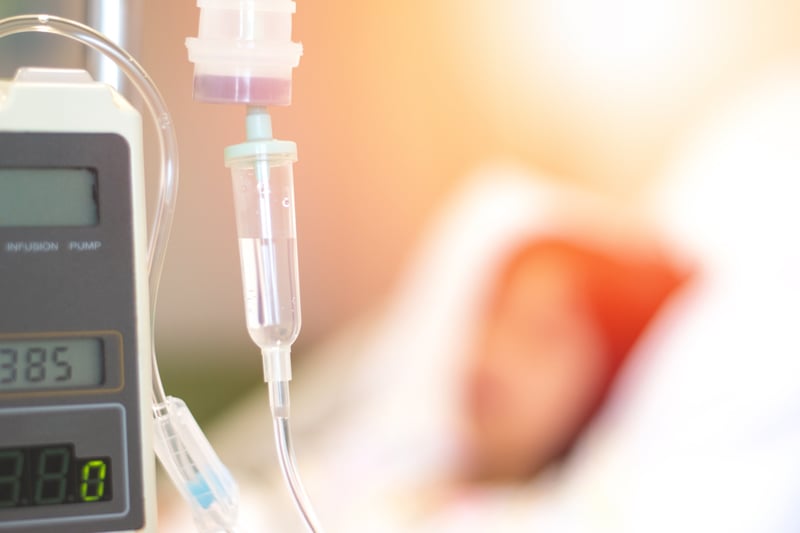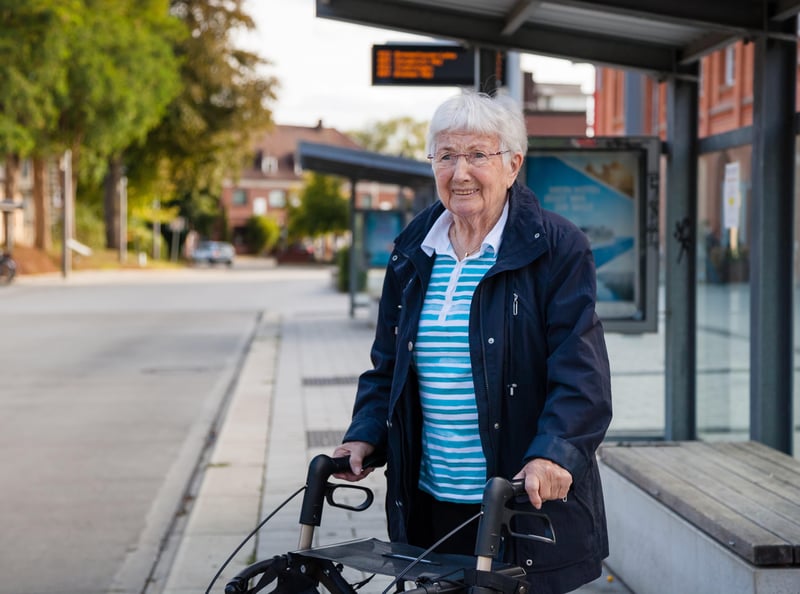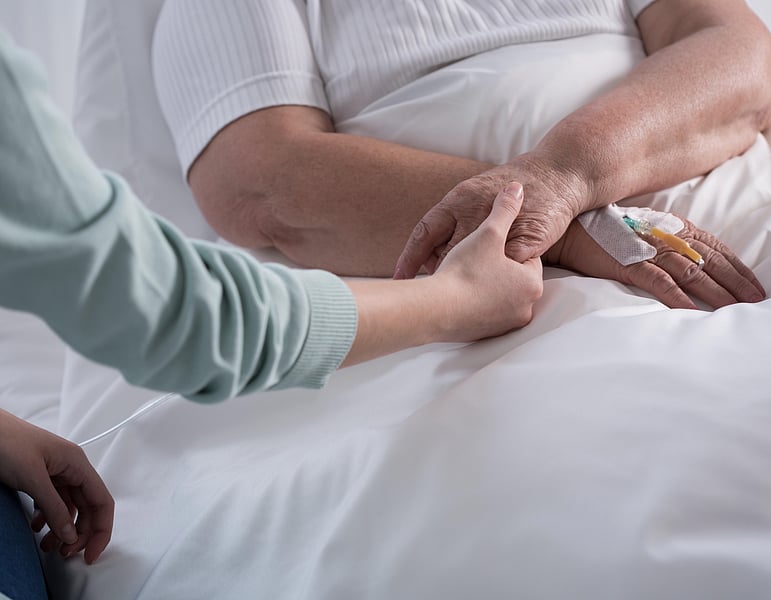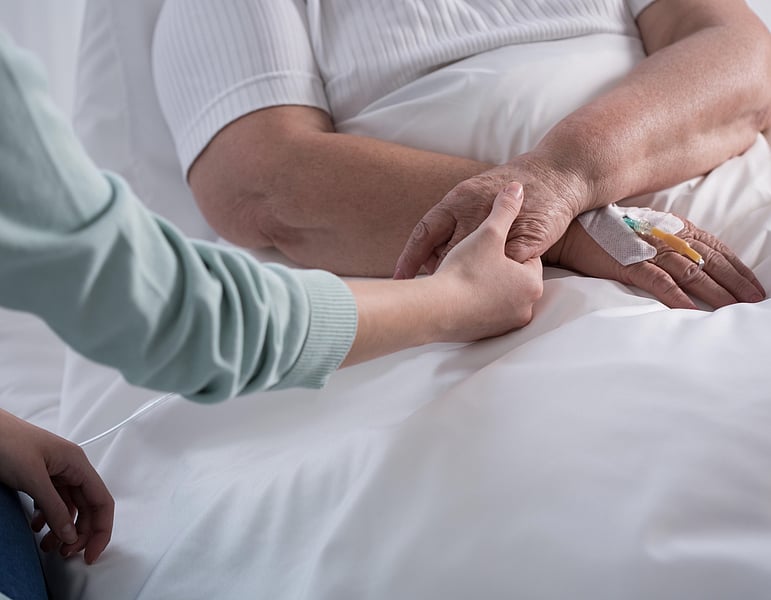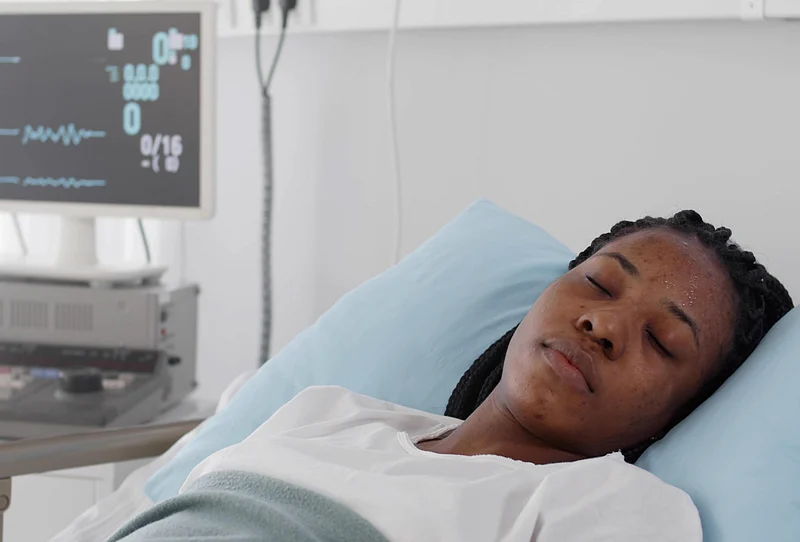Get Healthy!
Results for search "Survival".
Health News Results - 71
Beating cancer is no small feat, but a diet loaded with ultra-processed foods might undercut survivors’ future health, a new study says.
Cancer survivors with diets high in ultra-processed foods have a 59% higher rate of death from cancer, researchers reported today in the journal Cancer Epidemiology, Biomarkers & Prevention.<...
- Dennis Thompson HealthDay Reporter
- |
- February 4, 2026
- |
- Full Page
Cancer survival rates in the United States are better than they’ve ever been.
For the first time, the five-year survival rate for all cancers combined reached a landmark 70%, the American Cancer Society (ACS) said in its 2026 cancer statistics report.
That survival rate among people diagnosed betw...
- Dennis Thompson HealthDay Reporter
- |
- January 14, 2026
- |
- Full Page
Germany has agreed to provide more than $1 billion in new funding to support Holocaust survivors worldwide, helping many continue to live independently in their own homes.
The deal, negotiated with Germany’s Finance Ministry, makes it the largest home care budget in the organization’s history, totaling $1.076 billion (923.9 million euros) for 2025.
The funds will g...
- I. Edwards HealthDay Reporter
- |
- October 30, 2025
- |
- Full Page
Many breast cancer survivors take a hormonal drug after cancer treatment to stave off a recurrence, but new research suggests these drugs may be less effective in women who are obese.
Breast cancer cells in hormone-positive breast cancers are fueled by the female sex hormone estrogen. Aromatase inhibitor medications lower estrogen levels by stopping an enzyme in fat tissue called aro...
- HealthDay Reporter
- Denise Mann
- |
- October 18, 2023
- |
- Full Page
Many Americans diagnosed with cancer continue to drink alcohol regularly -- sometimes heavily and sometimes during treatment, a new study shows.
The study, of over 15,000 U.S. cancer survivors, found that 78% were current drinkers. And of them, significant percentages said they binged or engaged in other "risky" drinking. The same patterns were seen even among people undergoing cancer tre...
- HealthDay Reporter
- Amy Norton
- |
- August 14, 2023
- |
- Full Page
A growing obesity epidemic may affect the outcome of treatment for those dealing with cancer, according to a new study of adults and teens being treated for acute lymphoblastic leukemia (ALL).
Researchers called for further study of how weight affects the response to different chemotherapy regimens for ALL.
"We have known for roughly 15 years that obesity affects survival in pediatr...
- HealthDay Reporter
- Cara Murez
- |
- July 12, 2023
- |
- Full Page
When frail patients go into cardiac arrest and need cardiopulmonary resuscitation (CPR) during surgery, they're more likely to die than those who are stronger, a new study shows.
Researchers from Brigham and Women's Hospital in Boston studied the impact of frailty on survival in these cases where previously frailty was not considered as a factor.
"CPR should not be considered futil...
- HealthDay Reporter
- Cara Murez
- |
- July 6, 2023
- |
- Full Page
Sometimes women who survive breast cancer will die from a second cancer, and now new research suggests the risk of that happening is higher for Black and Hispanic survivors than white women.
"We believe this to be one of the first studies to comprehensively examine the racial and ethnic disparities in survival outcomes after a second cancer,"said study author
For patients battling late-stage lung cancer, prospects for survival have improved significantly since the advent of medications known as immune checkpoint inhibitors.
But exactly how long patients with advanced non-small cell lung cancer (NSCLC) need to be on immunotherapy has not been known. Until now.
According to new research involving more than 1,000 patients, those with stable...
- HealthDay Reporter
- Alan Mozes
- |
- June 9, 2023
- |
- Full Page
The percentage of cancer survivors who struggle with a disability has doubled in the past 20 years, new research shows.
"The fact that we are saving more lives from cancer is worth celebrating, but it also warrants a shift toward understanding and improving the quality of life for those who survive,"said study co-author
There's a "loneliness epidemic" in the United States, and feelings of isolation have been linked to heart disease, stroke and other health conditions.
Now, new research suggests that cancer survivors who feel lonely may be more likely to die than survivors who have more social support.
"Loneliness may be linked to worse survival following a cancer diagnosis through multiple mechanis...
- HealthDay Reporter
- Denise Mann
- |
- June 5, 2023
- |
- Full Page
For people who survive gunshot wounds, the trauma may leave mental scars that worsen with time, a new study finds.
Among 87 adults treated for gun injuries at a Wisconsin trauma center, many had worsening symptoms of post-traumatic stress disorder (PTSD) and depression six months later.
The findings, published May 22 in the
An experimental targeted drug could provide a fresh chance for people with recurring head and neck cancer that has grown resistant to other treatments, a new clinical trial says.
Ficlatuzumab used in combination with the already approved targeted drug cetuximab (Erbitux) significantly improved progression-free survival in relapsed head and neck cancer patients, according to results from a...
- HealthDay Reporter
- Dennis Thompson
- |
- April 3, 2023
- |
- Full Page
A phone call from a nurse may be the lifeline needed to help improve survival for heart failure patients.
New research from the Smidt Heart Institute at Cedars-Sinai in Los Angeles finds that check-in calls may help save lives.
"There's a lot of new technology and new ideas about how to manage people who have heart failure remotely, but we demonstrated that low-tech and old-fashio...
- HealthDay Reporter
- Cara Murez
- |
- February 2, 2023
- |
- Full Page
A new way of allocating donor lungs that eliminates geographical restrictions could save more lives, new research suggests.
In early 2023, the current U.S. system, which looks for compatible candidates within a fixed radius, will be replaced by the Composite Allocation Score. The new score will prioritize a candidate's medical needs.
"The importance of removing the geographical barr...
- HealthDay Reporter
- Cara Murez
- |
- January 9, 2023
- |
- Full Page
Your chances of surviving cancer could depend on the type of Medicare plan you have, a new study reports.
Americans enrolled in a privatized, cost-saving Medicare Advantage plan are more likely to die within a month of undergoing complex cancer surgery, compared to those in traditional Medicare, the researchers found.
Those covered by Medicare Advantage were 1.5 times more likely to...
- HealthDay Reporter
- Dennis Thompson
- |
- November 28, 2022
- |
- Full Page
Surgery can be a daunting prospect at any age. Now, researchers say they've spotted two key factors upping the odds of a poor surgical outcome in seniors.
Older adults who are either frail or suffering from dementia have high rates of death in the year following a major procedure, a new U.S. study finds.
Researchers found that among Americans aged 65 and older who underwent maj...
- HealthDay Reporter
- Amy Norton
- |
- October 21, 2022
- |
- Full Page
"Location, location, location" works in real estate, and a new study argues that the location of your hospital room could save your life after surgery.
Patients are more likely to die after surgery if they are placed in certain types of rooms to recover, researchers from the University of Michigan School of Medicine found.
Specifically, the researchers said patients can expect to ha...
- HealthDay Reporter
- Dennis Thompson
- |
- October 20, 2022
- |
- Full Page
Fertility preservation procedures for women with breast cancer won't raise the risk of their cancer returning later, a new Swedish study shows.
Women who had eggs or embryos frozen before going through chemotherapy did not have any increased risk of cancer recurrence or de...
- HealthDay Reporter
- Dennis Thompson
- |
- August 31, 2022
- |
- Full Page
Adding the drug Keytruda to standard chemotherapy can extend the lives of some women with an aggressive form of breast cancer, a new study finds.
The study involved women with advanced triple-negative breast cancer, a hard-to-treat form of the disease. Keytruda (pembrolizumab) is already approved in the Un...
- HealthDay Reporter
- Amy Norton
- |
- July 21, 2022
- |
- Full Page
Hormone replacement therapy (HRT) for breast cancer survivors doesn't appear to increase the risk of cancer recurrence or death, Danish researchers report.
Although HRT has previously been linked to a rais...
- HealthDay Reporter
- Steven Reinberg
- |
- July 20, 2022
- |
- Full Page
Getting a blood cancer diagnosis is devastating for young people, but it is also far more deadly if the patient is Black, new research shows.
The new study, which looked at outcomes for patients with acute myeloid leukemia (AML), highlights an urgent need to understand racial and ethn...
- HealthDay Reporter
- Cara Murez
- |
- July 7, 2022
- |
- Full Page
Breast cancer survivors who would like to have a baby can take some reassurance from a new study that finds motherhood doesn't lower their future survival chances.
Moreover, survival rates were no worse in younger women, those who had not been pregnant before or those with
COVID vaccination is highly protective against severe disease in people of all body weights, new British research finds.
The study of over 9 million adults found that those who'd received two doses of a COVID-19 vaccine were strongly protected against hospitalization or death from the disease. And the effectiveness was just as great for obese people as those with a healthy weight.
T...
- HealthDay Reporter
- Amy Norton
- |
- July 5, 2022
- |
- Full Page
More than 18 million Americans have now survived cancer, a new report shows.
The American Cancer Society (ACS) and the U.S. National Cancer Institute collaborated on the report to estimate cancer prevalence and help public health officials better serve survivors.
"As the popula...
- HealthDay Reporter
- Cara Murez
- |
- June 24, 2022
- |
- Full Page
U.S. veterans are at higher risk for melanoma, the deadliest form of skin cancer, than most Americans, and new research finds they are also more likely to have advanced-stage disease when it's detected.
At the time of diagnosis, "we found veterans with melanoma were more like...
- HealthDay Reporter
- Alan Mozes
- |
- June 7, 2022
- |
- Full Page
A small study delivers startling results on the power of a new immunotherapy treatment against rectal cancer: The drug triggered remission in all the patients who got it.
All of them had mismatch repair-deficient (MMRd) locally advanced rectal cancer and were given dostarlimab - an anti-PD-...
- HealthDay Reporter
- Robert Preidt
- |
- June 6, 2022
- |
- Full Page
The United States spends far more on cancer care than other wealthy nations, but it's not seeing a return on that investment in terms of lives saved, a new study shows.
Compared with the average high-income country, researchers found the U.S. spends twice as much on cancer care -- more tha...
- HealthDay Reporter
- Amy Norton
- |
- June 2, 2022
- |
- Full Page
Racial disparities in health outcomes persist in the United States, with Black and Hispanic Americans more likely to die within a month after a bleeding stroke than white Americans, a new study shows.
"We've known that there are disparities in death from stroke among racial and ethnic groups in the U.S. due to
Race and ethnicity matter when battling colon cancer, with young white patients facing notably better odds than Black, Hispanic or Asian patients, new research warns.
A look at colon cancer survival among Americans younger than 50 turned up a glaring discrepancy: Survival five years after diagnosis improved to nearly 70% among white patients over two decades, but was less than 58% among B...
- HealthDay Reporter
- Alan Mozes
- |
- May 24, 2022
- |
- Full Page
If you're poor and have a severe type of heart attack, the chance you'll live through it is significantly lower than that of someone with more money, new research shows.
The finding underscores the need to close a divide in health care that hits low-income people hard, said lead researcher Dr. Abdul...
- HealthDay Reporter
- Cara Murez
- |
- May 23, 2022
- |
- Full Page
Cancer survival rates rose more in states that expanded Medicaid under Obamacare than in those that did not, and rates increased most among Black patients and those in rural areas, according to a new study.
"Our findings provide further evidence of ...
- HealthDay Reporter
- Robert Preidt
- |
- May 19, 2022
- |
- Full Page
Leukemia at a young age is likely to affect survivors' longevity, a new study cautions.
Even when they're cured, teen and young adult survivors of leukemia have shorter life spans than those who've never had a blood cancer, researchers at the University of Texas MD Anderson Cancer Center found.
"We need to think about the long-term life span and the quality of life for our patients....
- HealthDay Reporter
- Robert Preidt
- |
- May 18, 2022
- |
- Full Page
Long-term survival after a heart attack has improved significantly overall among Medicare beneficiaries, although poorer people and Black Americans have been left behind, a new study claims.
"Our results demonstrate some accomplishments and some work ahead; we are making progress on improving long-term outcome...
- HealthDay Reporter
- Robert Preidt
- |
- May 5, 2022
- |
- Full Page
Survivors of teen and young-adult cancers may feel they've dodged a bullet, but they're not totally in the clear. A new study reveals a high risk of developing and dying from new cancers later on.
These young people require close monitoring, according to researchers at the American Cancer Society.
"The risk of subsequent primary cancer among cancer survivors has been extensively stu...
- HealthDay Reporter
- Robert Preidt
- |
- May 5, 2022
- |
- Full Page
In response to claims that a man was denied a heart transplant because he refused to get vaccinated against COVID-19, Brigham and Women's Hospital in Boston said Wednesday that its transplant policies mirror those used across the United States.
In a crowdfunding appeal for 31-year-old D.J. Ferguson, a father of two, his family said the hospital told him he was ineligible to receive a new ...
- HealthDay Reporter
- Robert Preidt and Robin Foster
- |
- January 27, 2022
- |
- Full Page
COVID-19 is changing medicine in yet another way: A new study finds that patients with COVID-related lung damage now account for nearly one in 10 lung transplants in the United States.
The researchers analyzed data on more than 3,000 lung transplants nationwide between Aug. 1, 2020, and Sept. 30, 2021. They found that 7% of them were performed to treat severe, irreversible lung damage cau...
- HealthDay Reporter
- Robert Preidt
- |
- January 27, 2022
- |
- Full Page
People hospitalized for COVID-19 are not necessarily out of the woods once they're discharged: Many land in the hospital again in the months afterward, a large U.K. study finds.
The researchers found that in the 10 months after leaving the hospital, COVID-19 patients were more than twice as likely to be hospitalized or die, compared to the general population. And even compared with people...
- HealthDay Reporter
- Amy Norton
- |
- January 26, 2022
- |
- Full Page
Your heart is in an incredibly vulnerable state if you've suffered a heart attack or are fighting heart failure, and cardiac rehabilitation could be an important part of your recovery.
Unfortunately, not enough older folks appear to be taking advantage of this life-saving therapy.
Fewer than one in 10 eligible Medicare beneficiaries get recommended heart failure rehab treatments, th...
- HealthDay Reporter
- Dennis Thompson
- |
- January 21, 2022
- |
- Full Page
The chance of someone who is covered by Medicaid surviving cancer may depend in part on where they live, a new analysis finds.
In states that had lower Medicaid income eligibility limits, cancer survival rates were worse for cancers both in early and late stages compared to states with higher Medicaid income eligibility limits, Amer...
- HealthDay Reporter
- Cara Murez
- |
- January 12, 2022
- |
- Full Page
Swapping out the butter or other artery-clogging fats in your diet for heart-healthy olive oil may add years to your life, researchers say.
Folks who consume more than 1/2 a tablespoon of olive oil a day are less likely to die from heart disease, cancer, neurodegenerative diseases like Alzheimer's or lung disease when compared to people who consume less of this
Beating cancer is a huge feat, but how survivors live their lives afterwards also influences their longevity. A new study shows those who sit too much and are not physically active are much more likely to die early from cancer or any other cause than those who are more active.
Data on c...
- HealthDay Reporter
- Steven Reinberg
- |
- January 11, 2022
- |
- Full Page
For people newly diagnosed with advanced melanoma, a combination of two immunotherapy drugs can double the amount of time their cancer remains progression-free, a clinical trial has found.
The treatment combines two drugs known as immune checkpoint inhibitors. One, called nivolumab (Opdivo), is already standard for advanced melanoma; the other, relatlimab, is not yet approved.
But b...
- HealthDay Reporter
- Amy Norton
- |
- January 10, 2022
- |
- Full Page
For smokers, new research suggests it really is never too late to quit.
The study found that folks who kick their habit after a lung cancer diagnosis will likely live longer than those who continue lighting up.
Investigators from Italy concluded that lung cancer patients who stop smoking at or around the time of their diagnosis can look forward to survival times nearly a third (29%...
- HealthDay Reporter
- Alan Mozes
- |
- January 5, 2022
- |
- Full Page
Cancer remains a major killer, with 10 million deaths reported worldwide in 2019.
More than 23 million new cases were documented globally in 2019, according to researchers at the University of Washington School of Medicine.
By comparison, in 2010 there were 8.29 million cancer deaths worldwide and fewer than 19 million new cases. Deaths were nearly 21% higher in 2019 than 2010, and...
- HealthDay Reporter
- Cara Murez
- |
- January 4, 2022
- |
- Full Page
For certain leukemia patients, some welcome findings: New research confirms long remissions after treatment with the drug ibrutinib and chemotherapy.
The study involved 85 patients with chronic lymphocytic leukemia (CLL). All were 65 or younger, and 46 had more aggressive, unmutated IGHV subtype of the d...
- HealthDay Reporter
- Robert Preidt
- |
- December 14, 2021
- |
- Full Page
Women are two times more likely than men to die after receiving a combination of cancer immunotherapy drugs called checkpoint inhibitors, but it's not clear if that difference is due to side effects or because the treatment isn't working, researchers say.
This new class of highly targeted drugs -- which includes pembrolizumab (Keytruda), nivolumab (Opdivo) or ipilimumab (Yervoy) -- has re...
- HealthDay Reporter
- Ernie Mundell and Robert Preidt
- |
- December 3, 2021
- |
- Full Page
People who recovered from a severe case of COVID-19 may have more to worry about: New research finds that patients hospitalized with COVID are 2.5 times more likely to die within the year than people who never contracted the coronavirus.
They also are nearly twice as likely to die as people who had a mild case of COVID, researchers say.
The risk of death is even higher for hosp...
- HealthDay Reporter
- Dennis Thompson
- |
- December 2, 2021
- |
- Full Page
Lung cancer survival rates in the United States continue to rise, but certain racial groups are still hit hard by the disease, the American Lung Association reports.
Its fourth annual "State of Lung Cancer" report shows that the average five-year survival rate increased from 14.5% to nearly 24%, but it remains at 20% for people of color overall, and 18% for Black Americans.
"The rep...
- HealthDay Reporter
- Robert Preidt
- |
- November 16, 2021
- |
- Full Page




